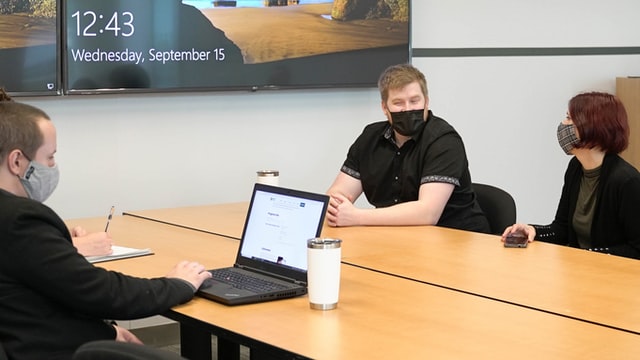Table of Contents
When a teacher sees one of their students falling behind, having the same issues over and over, and just doesn’t seem to learn like other students, they may wonder if the student has a specific learning difficulty that may require special education wisdom to overcome. This isn’t really enough, however, to decide whether or not the student should go for a formal psychological evaluation. Instead, teachers should think about what they hope to achieve and whether psychological testing will be necessary or helpful to achieve these goals.
What is a Psychological Evaluation?
A formal psychological evaluation is a series of targeted tests proctored by a licensed psychologist at school or at a separate testing facility that can help to measure and quantify a students mental strengths and weaknesses in learning and daily life. After quantifying the results of the various tests, going through interviews with the child, and considering all of their findings, the psychologist writes a report detailing what the numbers in the various domains of each test mean and suggests appropriate strategies and accommodations that could help the child in school and at home.
Psychological testing can be quite expensive depending on where the student is living and what types of insurance they might be covered under, and so it is important to consider whether the evaluation is really necessary in order to implement the appropriate interventions to help the student.
There are many research based interventions that could be attempted that don’t require anything but the teacher’s ingenuity and the school’s support. However, other more formal accommodations and strategies, especially if they are to be used on standardized external examinations, will require a psychologist’s official report to pursue.

5 Reasons for a Student to Seek Psychological Testing
Rather than just suggesting all students who show any learning differences go for a formal evaluation, it is best to think about what a formal evaluation will achieve and what benefits it might provide. There is no need for a formal evaluation to test out strategies originally developed for students with a specific learning difficulty in a teachers classroom.
If a teacher simply suspects that a student might have ADHD or an Autism Spectrum Disorder, they can simply spend a bit of extra time getting to know that student, their needs, and apply whatever strategies they think might be beneficial in their expert opinions.
The teacher can keep track of how the student responds and whether their grades improve to continue to tailor their approaches. Many of the approaches developed to help students with special needs actually just work by bypassing one learning pathway in the brain with another. Looking at a subject from a different perspective and using a different part of their brain is helpful to all students, and also might make a huge difference for a student with special needs.
However, there are several very clear benefits that the teacher can not implement alone without a formal psychological evaluation. If the teacher thinks that their student might benefit from one or more of the benefits below, it may make sense for the teacher to begin a conversation with the parents, the school psychologist or other appropriate mental health or special education professional.
Then, the teacher along with the new support team being created for the student can decide if it makes sense to go through with psychological testing with a doctor or if there might be other more appropriate steps to take.
1: To get formal accommodations on external tests
One of the main reasons that a student might benefit from a formal evaluation is that the teacher feels that they will require formal testing accommodations in order to be able to show their learning under testing conditions. There are a wide variety of accommodations that a student might qualify for depending on the scores they got in their various psychological tests. For example, if the student got lower scores in the “Processing Speed” domain, the student might qualify for extra time to complete their exam. Similarly, if a student has a neuromuscular disorder which makes them have to write slowly or have illegible handwriting, a formal evaluation might be able to get them a computer to type their exam so as to bypass their muscle issues and allow them to show their learning in a fair way considering their condition.
The psychologist will give various recommendations as to what accommodations the student would qualify for, and it is up to the teacher and the rest of the student’s learning support team to decide which accommodation to implement and how to prepare the student to use them. A student should take their tests in school as similarly as possible to how they will during their external exams so that they can get used to their accommodations.
For example, if a student gets a text to speech or speech to text program as an accommodation, they should use in school testing to get used to the program and get used to working with it so that on exam day, they have no technical issues to overcome with what should be making their testing experience smoother.
2: To try medication
Many medications, especially for students with learning differences, are often overprescribed and given to students when any level of difficulty begins to arise. ADHD is one of the most common learning differences and many are quick to suggest students take medication to calm them down and make them easier to manage in school.
Rather than thinking about what might make the lesson smoother, the learning support team should decide whether medication might be useful in the short term to help the student manage some of their symptoms and more quickly and effectively develop long term coping strategies. If students are just medicated without being given coping strategies, they will always be reliant on the medication to control their behavior and will be subject to the myriad of negative side effects many drugs have in spite of their benefits.
That being said, however, in severe cases, where a student is completely unable to control their behavior or is a danger to themselves and others, getting a student on medication might help them gain control of their mental resources and be better equipped to develop other long term strategies to be successful.
Obviously, before being put on any medication, a student must receive an official diagnosis and so this would be another good time to suggest a student seek psychological testing. Along with the scores, the evaluation will suggest if any further specific tests should be conducted such as those to diagnose Autism Spectrum Disorders, ADHD, or other learning differences.
3: To seek guidance from other professionals.

Sometimes, a teacher isn’t sure whether the student actually needs psychological testing, but just needs some help in being sure they are doing everything they can for a student who might be struggling. The first steps that a teacher should follow are the same in either case.
The teacher should start by contacting either the school psychologist or other learning support professional who is responsible for overseeing students with special needs at the school to discuss the child in question.
This conversation in and of itself can be very helpful whether or not it leads to the student being asked to go for a formal evaluation. Many times, the school psychologist will already know the student from working with them in previous years or they will have a set of easy to implement strategies to try for students who have had similar issues in the past. They might even have the time to come in and do an observation and give even more targeted interventions that might help the student without the cost and hassle of a formal evaluation.
By flagging the student and seeking help, the teacher is doing their best to ensure they are doing everything in their power to help the student while also acting as a data point for the school administration and psychologist. Many times, one teacher bringing up a student won’t lead to much change or intervention, but if several teachers bring up the same student, it is more likely that the school will take action to support the student. Rallying a larger support team and seeking a bit of advice can be very helpful even if it just works as a sounding board for some ideas. Many times, these conversations can lead to enough change for the student that a formal evaluation is never needed.
If the evaluation is deemed necessary by the learning support team, then the teacher will receive a full report on their student’s strengths and weaknesses along with a set of suggestions on targeted interventions to help their student overcome their current issues. These suggestions can be great for a teacher as they can give ideas that not only help that student, but better prepare the teacher with strategies to try with future students having similar issues.
Having advice from other trained professionals, whether a school psychologist, or a report from an external psychologist can be helpful in making better lesson plans and the teacher can continue to liaise with the psychologist if any future issues arise with the student.
4: To help parents understand their kids.
Sometimes, it isn’t the teacher who needs help understanding their student’s educational abilities, but the parents at home who don’t see that side of their child. Many parents of students with learning differences may have unrealistic expectations for their child or not understand why they learn differently from others.
It can sometimes be helpful, especially with younger students, to suggest the parents take their child in for psychological testing to help them understand their child better and introduce an unbiased third perspective into the discussion of the child. Whether anything gets told to the child or not is up to the expertise of the learning support team and the teachers’ and parents’ knowledge of the student, but many times a doctor’s guidance and formal report can help when parents are upset and blame the school that their child is struggling.
5: To help kids understand themselves.

One of the most difficult things to decide is when students themselves might benefit from knowing about their learning differences. Some students are painfully aware that they are different from their peers and this can lead to other mental health concerns like depression and anxiety.
These self aware students can sometimes think of themselves as lazy or stupid rather than just different. While some immature students might try to use a diagnosis as an excuse to not try or get away with bad behavior, other students really benefit from seeing how their brain is different and actually being involved in discussions about their learning.
More mature students will often actually benefit a lot from the metacognitive exercises involved in considering their learning styles and looking at their reports to see their areas of weakness as well as consider their areas of strength. Students who aren’t aware of their differences and how they learn can’t be as helpful at overcoming their challenges as students who know themselves and better understand why the teacher does what they do.
Involving a student in the discussions of their mental health and learning styles will help them be better prepared to be an independent learner who knows how to use their strengths to succeed alone, but who also knows when to seek help from others.
Want more like this? Make Lab to Class a part of your weekly professional development schedule by subscribing to updates below.




